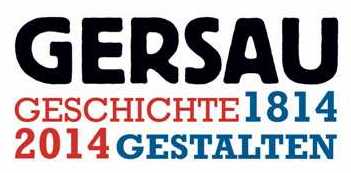Gersau 1814/2014 – Shaping History
Small but free? Self-Determination and External Control in European Republics
Gersau, 21–23 March 2014: An international conference on republicanism

For over 400 years, the parish of Gersau on Lake Lucerne formed a sovereign micro-polity under the protection of the Swiss Forest Cantons and the Holy Roman Emperor. From the purchase of all feudal rights in 1390 to the French invasion in 1798, this rural commune passed its own laws, ran its own jurisdiction and maintained its own militia. It even appointed the local priest and wrote its own chronicles. Following the defeat of Napoleon's revolutionary army, the communal assembly decided to return to the old order on 2 February 1814. This was short-lived, however, and Gersau soon became a district of the Canton of Schwyz. To mark the bi-centenary of the republic's restoration, Beat Kümin (History/Warwick) teamed up with the local authorities to devise 'Gersau 1814/2014 – Shaping History', a year of initiatives to commemorate the past and look to the future.
One of the main events was an international conference on republicanism held at Gersau from 21-23 March 2014. Under the title of 'Klein aber Frei? Eigen- und Fremdbestimmung in europäischen Republiken [Small but Free? Self-Determination and External Control in European Republics]', contributions focused on the relationship between a polity's size/resources and the extent of collective freedom. The regional and chronological perspective covered Italy, the Swiss Confederation, the Holy Roman Empire, Poland and the Dutch Republic from medieval to modern times (cf. the full programme and podcasts of conversations with participants). In his paper, Martin van Gelderen (Göttingen) addressed the human right of free movement in the works of Hugo Grotius. He kindly agreed to discuss this topic – and the state of scholarship on pre-modern republics more generally – in an interview with the conference organizer (recorded by Kyle Camenzind). We are grateful to Gersau District Council for permission to feature the video on the Early Modern Forum.
A similar interview with Prof. Dr. André Holenstein (University of Bern) on the republic of Gersau and recent historiographical trends is available in Swiss German. For further information about the Gersau 1814/2014 project, please contact Beat Kümin: B.Kumin@warwick.ac.uk.
